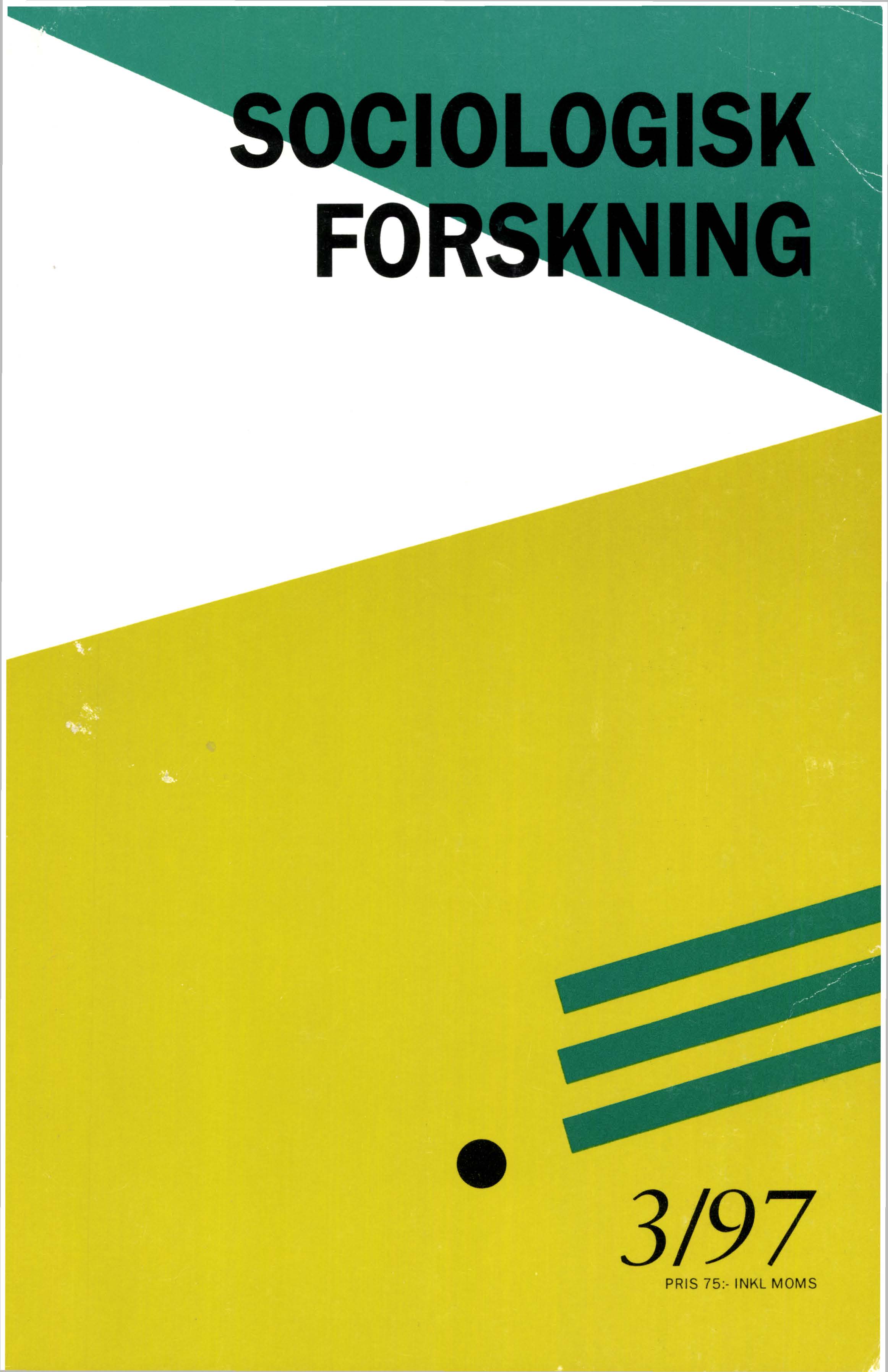Livsvärldens rationalisering och studiet av partikularism
DOI:
https://doi.org/10.37062/sf.34.18542Abstract
Particularism and the reationalization of the lifeworld
A phenomenon that has attracted increasing attention during the last decades is particularism (e.g. ethnic identification, nationalism). I belive that Habermas’ theory of the rationalization of the lifeworld can be made fruitful for the study of this phenomenon. The concept of the ”rationalization of the lifeworld”, however,needs to be differentiated in order to grasp the ambivalent character of modern particularism, which is both rational and irrational. It is rational in the sense that it is often supported by conscious reasons; it is irrational in the sense that these reasons do not claim validity outside of the particular group. I therefore propose that the concept of ”the rationalization of the lifeworld” be divided in two: critical rationalization and generalization. Critical rationalization means an increase in people's ability to critizice beliefs and that justifications therefore have to be made more explicit. Generalization means that justifications are made more generally acceptable. These two kinds of rationalization are not always parallell. They are separate processes, and modern particularism is, I believe, the result of a divergence of critical rationalization and generalization. This differentiation of the conceptof rationalization is therefore a necessary first step in order to turn Habermas’ theory into a theory of particularism. It also has the advantage of more clearly bringing into light some features of his view of reification.
Downloads
Published
How to Cite
Issue
Section
License
All content in Sociologisk Forskning is published with immediate open access, under the Creative Commons license CC BY-NC-ND 4.0.
All content may be read, downloaded, shared and printed for non-commercial purposes, free and without fees. Contents may not be altered. When content is reused, author, source and a link to the copyright licence must be provided. The author retains copyright to their content. No publication fees are charged.





